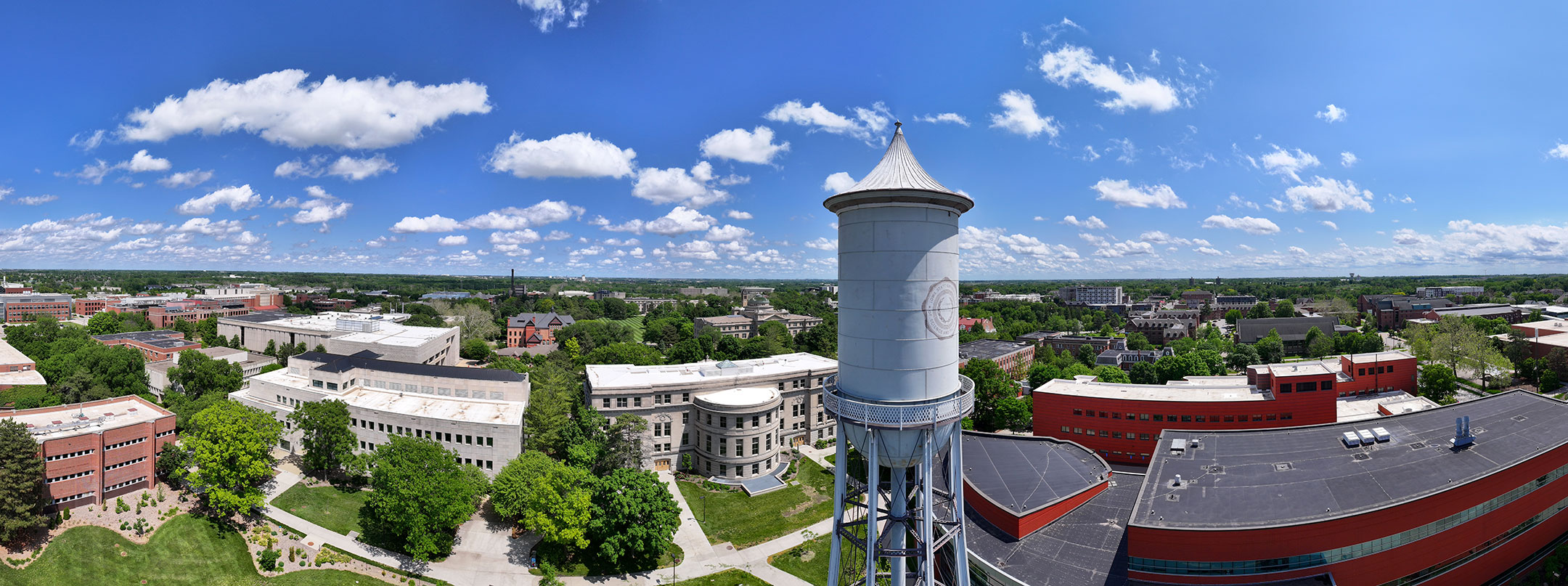Aerospace Engineering
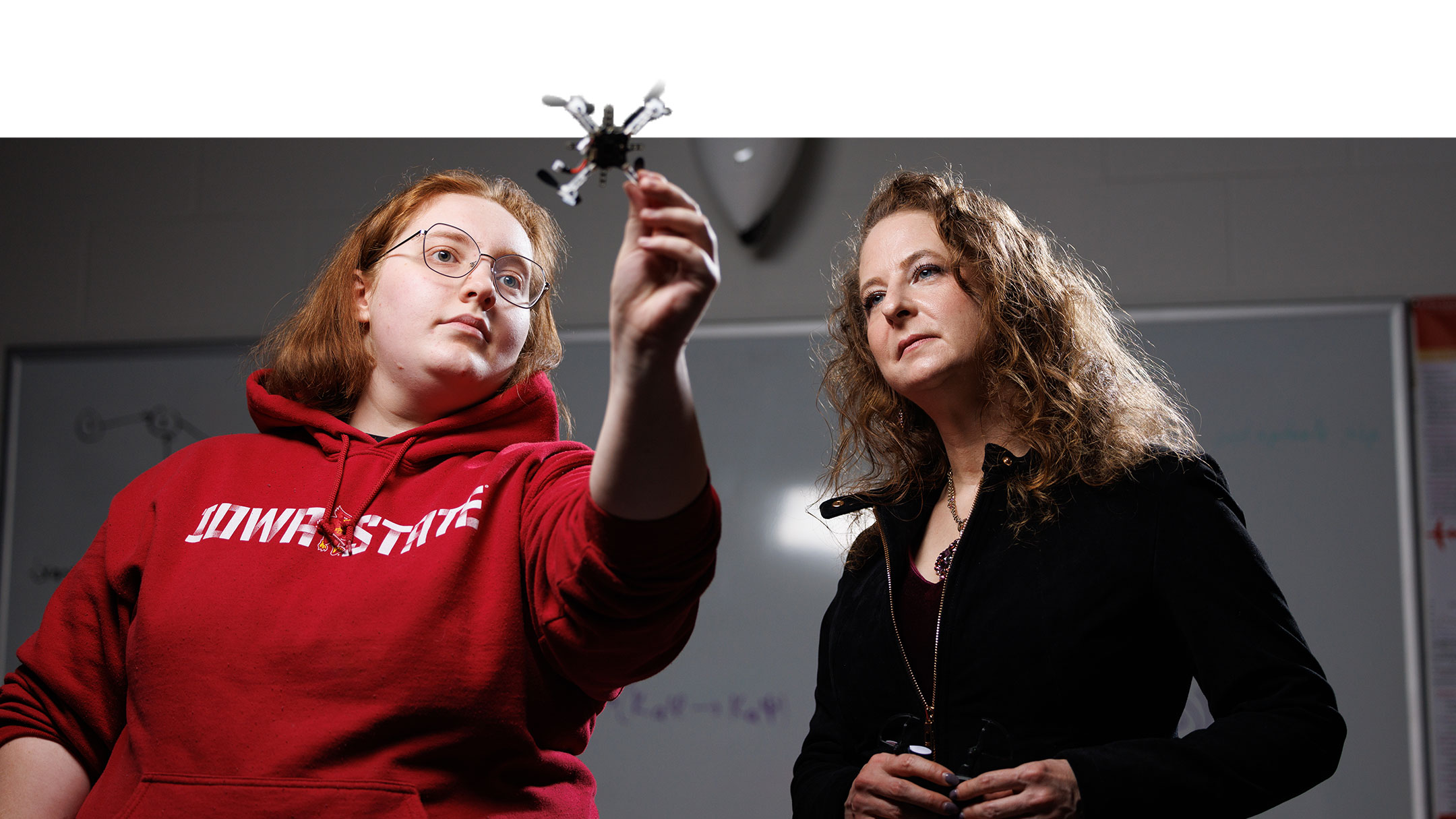
An Aerospace Engineer
in the Making
Aerospace engineering is more than planes; it’s autonomous vehicles, complex systems, satellites, rockets and more. We give you the tools, hands-on experience and motivation to guide you into a successful and exciting career. Our graduates are leaders in aircraft design, development, and operations. Aerospace engineering sets you on the trajectory for success.
-
87%
employed or continuing education within six months of graduation
-
$77,000
average starting annual salary
-
$26/hr
average earnings for internships and co-ops
A competitive advantage
Iowa State Engineers get hired. And we’re here to help connect you to internships and full-time jobs.
- 1,000+ employers recruit engineering students each year
- One-on-one career advising
- Networking opportunities
Community and Support
College is more than just academics. Join the community and you’ll find friends, new perspectives and experiences—and support.
- Learning communites
- Clubs and student organizations
- Support resources and groups
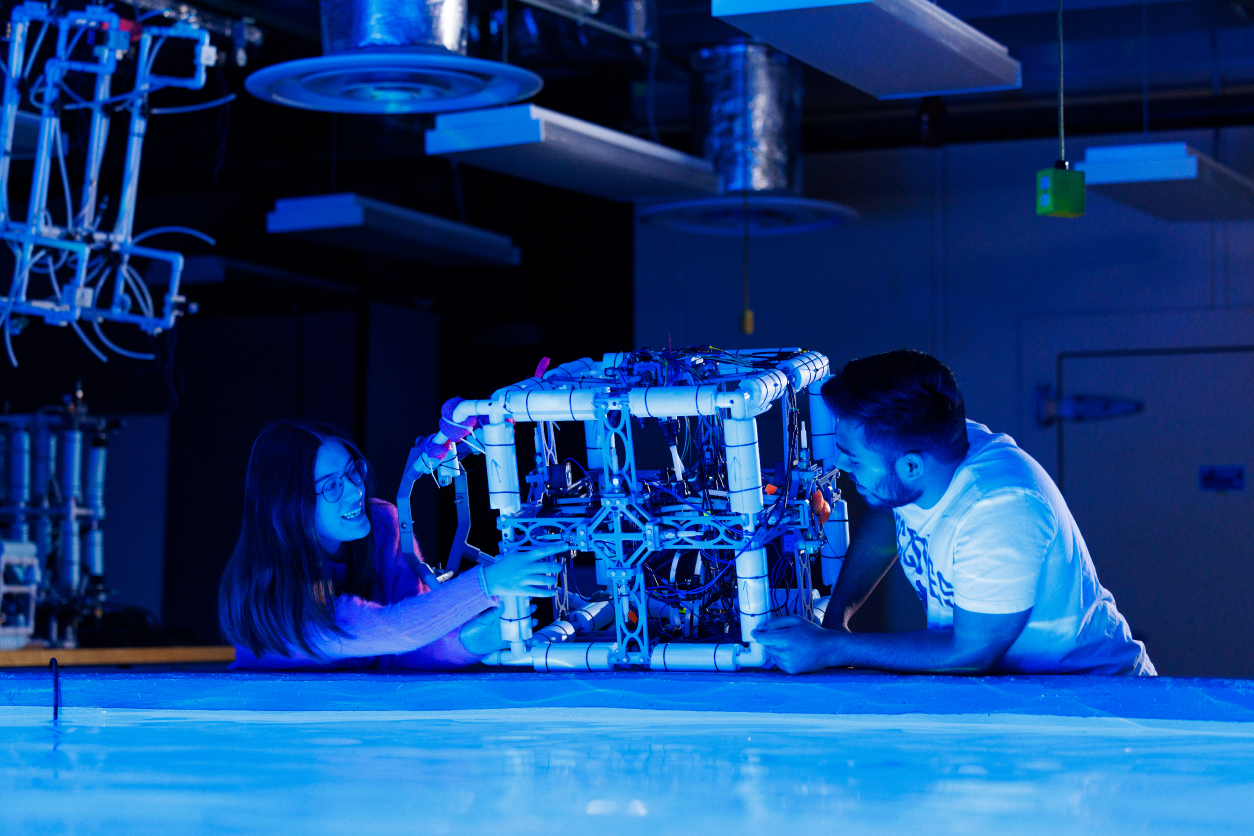
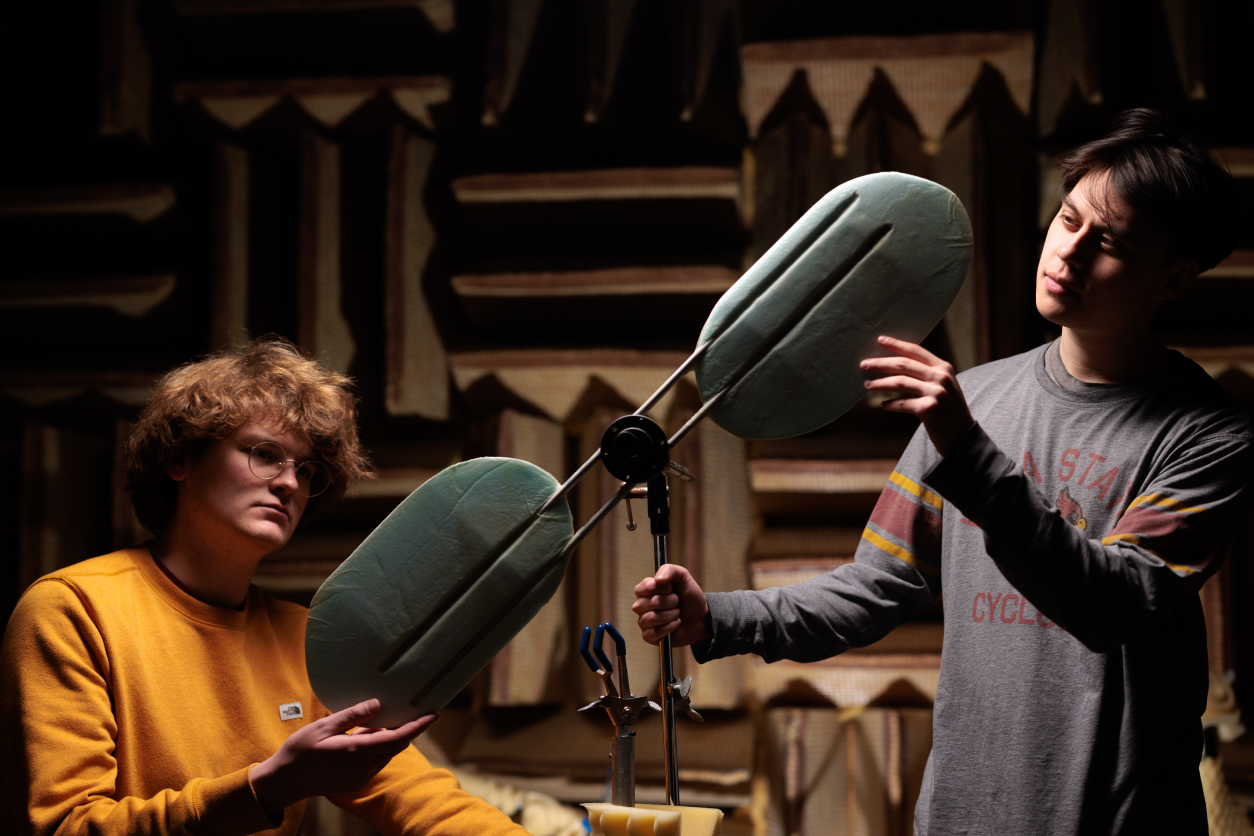
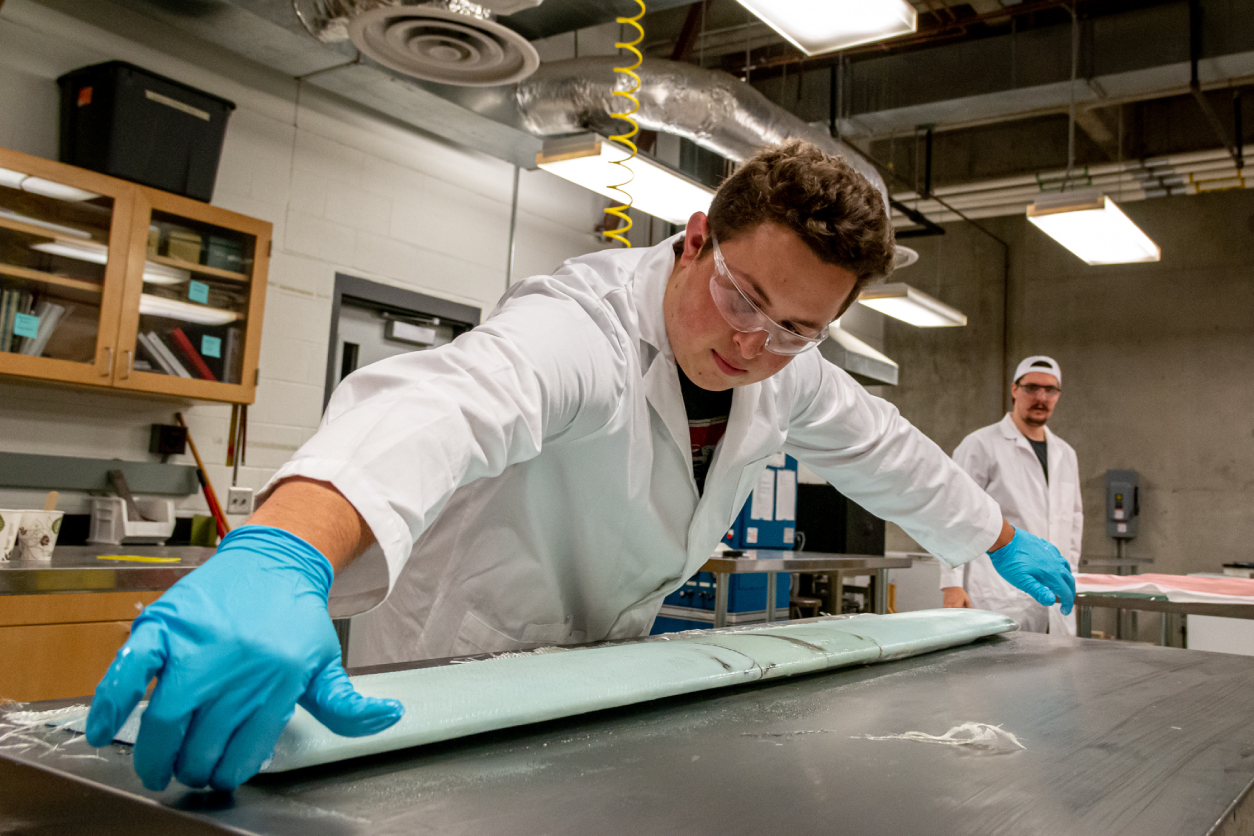
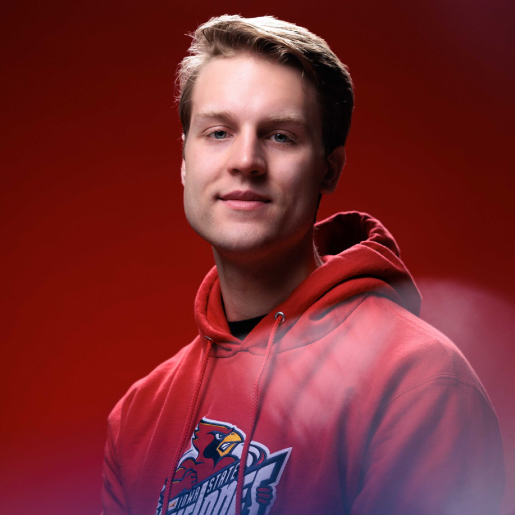
Being a Cyclone means not giving up. It means doing something accurately and the right way. It means being proud of your studies; using your resources, knowledge, and abilities.
Michael Miller, aerospace engineering
What can I study?
Our program is committed to real-world preparation; hands-on experiences to understand the problems of tomorrow; and design challenges focused on aerospace industry needs.
The aerospace curriculum is designed to provide you with an education in the fundamental principles of aerospace engineering, including:
- Aerodynamics
- Astrodynamics
- Controls
- Design and Systems
- Propulsion
- Structural Mechanics
For the 2024-25 academic year, our aerospace engineering students preferred these minors:
Aerospace Engineering at Iowa State
Whatever your goals are, your success is important to us! Our programs, labs, hands-on learning and facilities will give you a competitive advantage.
-
Hands-on learning in
state-of-the-art facilitiesHands-on learning in
state-of-the-art facilitiesCenter for Nondestructive Evaluation
This facility contains state-of-the-art equipment used to discover flaws that may lead to the failure of aircraft engines or wind turbines.
Composite Structures Lab
Build your own structure models from composite materials and test them for durability and strength.
Flight Simulator Lab
Experience aircraft flight with four high-fidelity desktop simulators providing a detailed, immersive and challenging flight experience.
Make to Innovate (M:2:I) Laboratory
You have access to a wide range of tools, computers, electronic instruments, and 3-D printers. This space is great for design creativity to address real-world problems.
Next gen classroom
With custom glass whiteboards and 12 video monitors, the open-air layout facilitates interactive breakout groups and instructor-driven lectures.
Virtual Reality Applications Center (VRAC)
Step into a virtual 3-D environment in the C6 facility – featuring some of the highest resolution you’ll find anywhere in the world.
Wind Tunnels
Conduct a variety of tests in our wind tunnels. Industry uses similar equipment to evaluate aircraft configurations, test building structures and visualize shock waves.
-
Research opportunities
and partnershipsResearch opportunities
and partnershipsYou can partner with our aerospace engineering faculty to work on projects like micro-aerial vehicles, reusable launch vehicles, nondestructive evaluation of equipment, or picosatellites, and often present at professional conferences.
Our aerospace engineering department has partnerships with companies like Boeing and Collins Aerospace.
-
Opportunities beyond
the classroomOpportunities beyond
the classroomLearning Communities
You can join a Launch Pad learning community where you take classes together, get advice from experienced peer mentors and work with faculty on projects. Honors Launch Pad is also an option for students in the First-Year Honors Program.
Study abroad
Take advantage of one of our many study abroad opportunities around the world.
The Sky is NOT the Limit!
Our faculty and students conduct cutting-edge research in nondestructive evaluation; complex systems; computational and experimental aerodynamics; astrodynamics; guidance, navigation and control; aircraft icing; composite structure; and micro/nano mechanics of materials.
Each year, Iowa State awards millions of dollars in scholarships to students. Learn more about scholarship opportunities for:
More information about cost of attendance and other types of aid is available from the Office of Student Financial Aid.
Orientation is for students who have accepted admission to Iowa State and plan to enroll in an upcoming term. During orientation you will be provided the opportunity to:
- meet with an academic advisor
- register for classes
- obtain your ISU card
- become familiar with the campus
- increase knowledge of important policies and procedures
The basic program for engineering majors is a set of courses common to all engineering curricula. Students normally enroll in the majority of the basic program courses during their first year.
Learn more about new student orientation and the first-year engineering program.
- 8,225 engineering students (fall 2024), the largest college on the Iowa State campus, with the support of 500+ engineering faculty and staff dedicated to teaching, research and student achievement.
- 75% of Iowa State engineering students graduate with engineering work experience. Internships and co-ops, learning communities, study abroad, 90+ engineering organizations give the hands-on experience to help shape student success.
- Our bachelor of science degree programs are accredited by the Engineering Accreditation Commission of ABET.
- More college facts and highlights
What courses should I be taking in high school to prepare for a engineering degree?
Many high school students have access to college-level courses in high school. We know it’s in your nature to maximize your opportunities.
Learn more about what’s required, what’s recommended and what will transfer
What kind of a laptop computer will I need?
Iowa State University students are required to own or obtain a laptop computer appropriate to your discipline and program of study.
College of Engineering laptop computer recommendations
Can I study abroad?
Engineering International Programs can help you find study or work abroad experiences suited to your interests and goals. Expert staff can assist with course enrollment and transfers to keep you on track for graduation.
Learn more about Engineering International Programs
Are there ways to get practical work experience while at Iowa State?
Participation in a co-op or internship is a great way to gain real-world work experience. Students are employed by industry and government organizations in positions related to their major field of study. Unlike a typical part-time or summer job, an engineering co-op or internship must Involve the Practice of Engineering, and students must be paid. Co-ops and internships are not required by the college, but they are highly encouraged.
Learn more about Internships and Co-ops
There are also opportunities for students to work alongside professors doing research in areas related to their major field of study.
Learn more about Undergraduate Research Opportunities
Engineering Recruitment and Student Services
1300 Marston Hall, 533 Morrill Road, Ames, IA 50011
Phone: (515) 294-7186
Office Hours: Monday-Friday, 8 a.m.-5 p.m.
